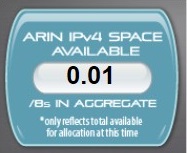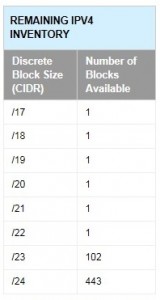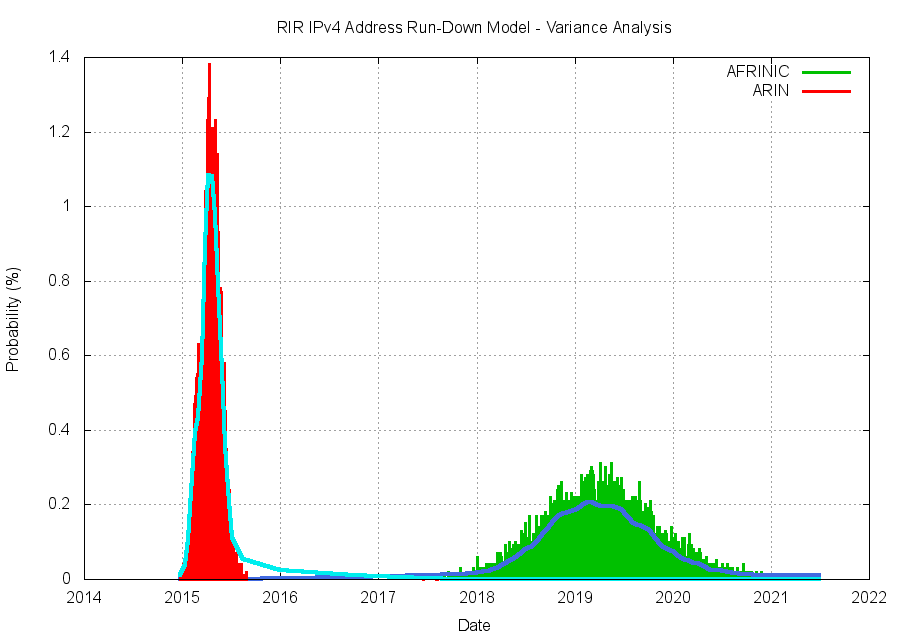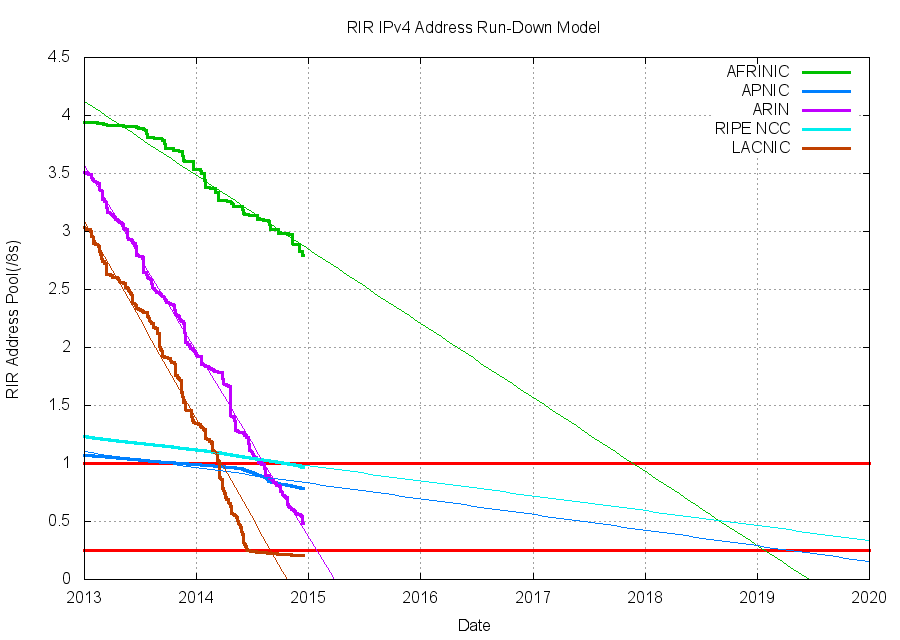 Next week is the ARIN 35 meeting in San Francisco. Here is my look ahead at the some of the nine policies being discussed at the meetings. There are four recommended draft that will be discussed along with lots of other items on our agenda. If you aren’t going to be there in person check out the remote participation options.
Next week is the ARIN 35 meeting in San Francisco. Here is my look ahead at the some of the nine policies being discussed at the meetings. There are four recommended draft that will be discussed along with lots of other items on our agenda. If you aren’t going to be there in person check out the remote participation options.
2014-1 Out of Region Use
Policy Summary: This recommended draft policy allows organizations which have a small block in the region to request resources for use outside of the region.
Discussion: This policy started after it became known that organizations which are generally outside the region were requesting resources and using them almost exclusively outside the region. The primary motivation for these companies is that IPv4 has already been depleted at other RIRs. The policy took a number of twists and turns, but in general the community would like to see organizations which are headquartered in the region to be able to get addresses for all of their networks globally. While this seems simple reducing this to policy has been a challenge.
The policy as currently drafted only requires a small nexus of addresses in the region /22 of IPv4, /44 of IPv6, or 1 ASN. ARIN’s legal counsel has raised strong concerns regarding this policy and those concerns will likely be the root of the discussion at the meeting.
2014-6 Remove Operational Reverse DNS Text
Policy Summary: This recommended draft policy removes text in the number policy manual which defines ARIN’s operational practice with regard to reverse DNS records.
Discussion: The purpose of this policy is to remove text out of the policy manual which is operational in nature rather than number policy. It is planned that this operational policy be moved to other locations where it can be updated as needed by ARIN’s operational staff, rather than the number resource community.
2014-14 Remove Needs Test on Small Transfers
2014-14 Policy Summary: This draft policy removes needs testing from blocks which are smaller than /20 and permits an organization to have one needs-free transfer per year as long as a corporate officer attests to the organizations need of the addresses.
Discussion: This policy was rewritten extensively, largely by myself, with input from members of the AC. When the policy was returned to the list the new text seems to have fallen flat without much discussion. In my mind this means I have crafted text that now appeals to very few because it makes great compromises between the two sides of the argument for and against needs testing in the transfer market, or people don’t think this type of policy will solve the problems that exist in the current transfer market. I suspect this policy will likely be abandoned by the AC following the meeting. Hopefully, at least we have a robust discussion about what types of policy changes are needed as ARIN moves to mostly processing transfers rather than issuing addresses from the IPv4 free pool.
2014-21 Modification to CI pool
Policy Summary: This recommended draft policy sets asside an additional /16 for use by critical infrastructure.
Discussion: The policy is intended to benefit the Internet exchange point community, which is rapidly changing in the region. Given the imminent run-out of IPv4 free pool in the ARIN region, this policy is intended to insure that exchange points will have the number resources they need to continue to expand and provide needed interchange services for years to come.
2014-22 Removal of Minimum in Section 4.10
Policy Summary: This recommended draft policy changes the minimum block size from /28 to /24 for the IPv6 transition block.
Discussion: This policy increases the minimum block size because recent testing has noted that smaller blocks may not be routable. This is, in my opinion, a chicken and egg, problem. People aren’t accepting smaller blocks because there aren’t many of them now, and they haven’t really been issued by the registries to entities which have the ability to get them routed. Others believe that the /24 boundary is so engrained in the operator community that they won’t change thus making smaller blocks basically useless to organizations which receive them. I suspect that the larger ISPs and providers will support this change as it allows them to maintain the status quo rather than changing to support the changing network environment.
2015-1 Change in IPv6 End-User Assignment criteria
Policy Summary: This draft policy changes the assignment rules for small organizations.
Discussion: It was pointed out recently that a type of small organization currently cannot receive an IPv6 assignment because the criteria is too strict. Furthermore, it is noted that renumbering is a complicated and costly process and these small organizations would not like to have to take on the renumbering process when they change providers.
 This has been a long time coming, but looking at the available addresses in the ARIN IPv4 free pool today, you can see that there are just a few specs of IPv4 addresses available.
This has been a long time coming, but looking at the available addresses in the ARIN IPv4 free pool today, you can see that there are just a few specs of IPv4 addresses available.

 Next week is the
Next week is the 
